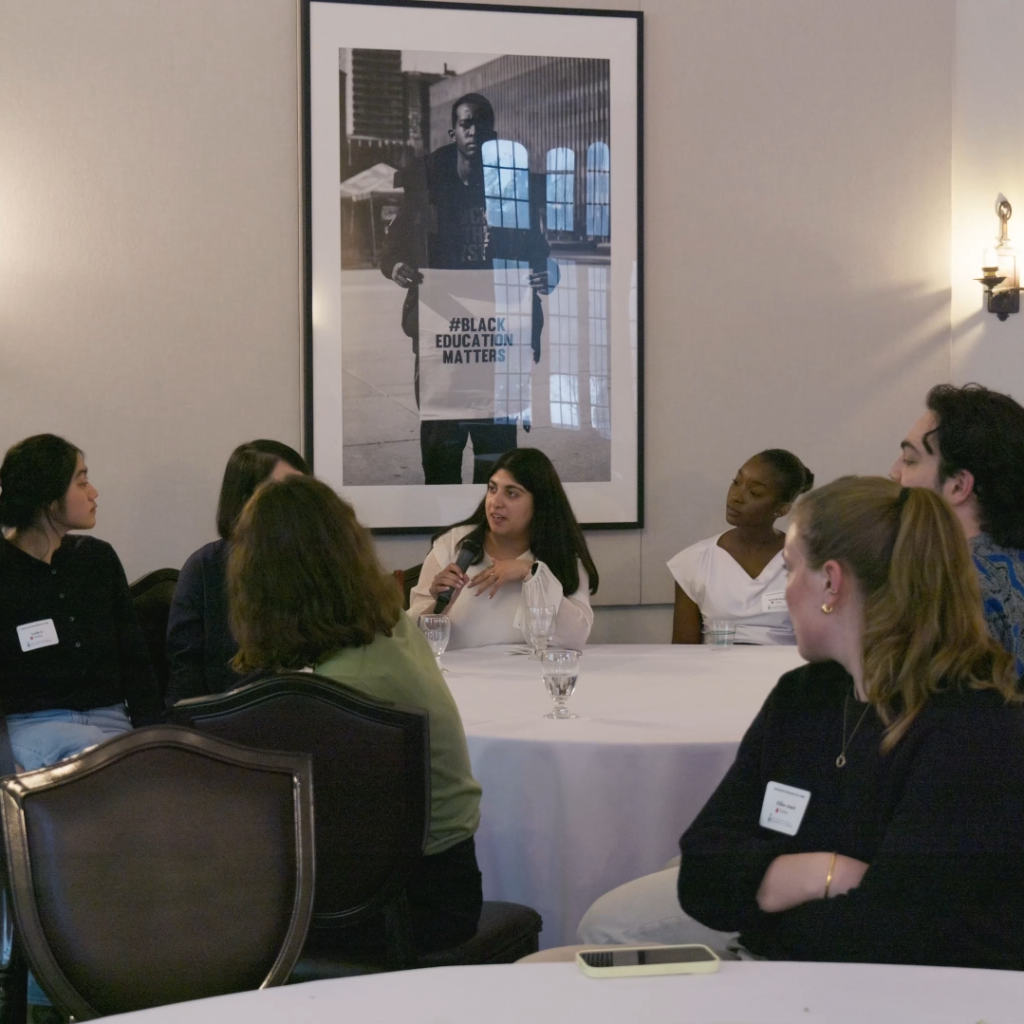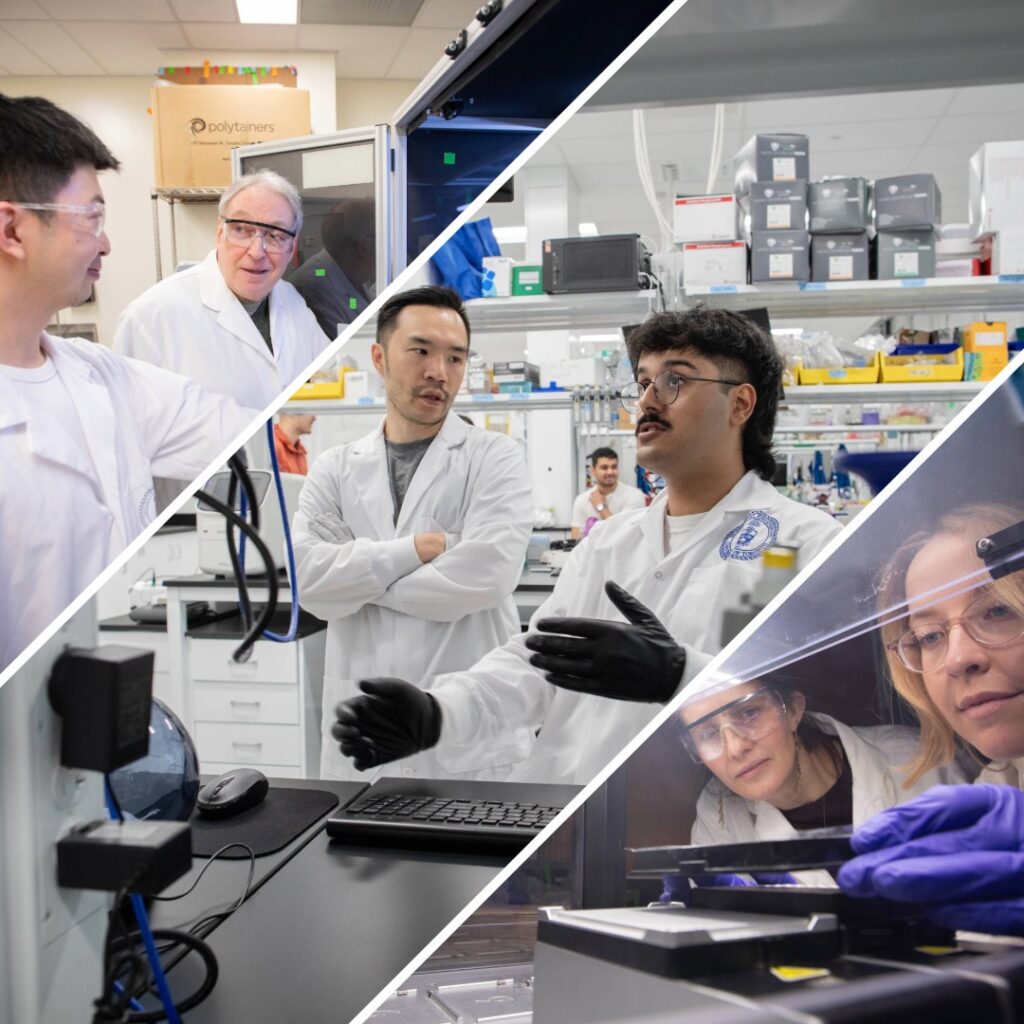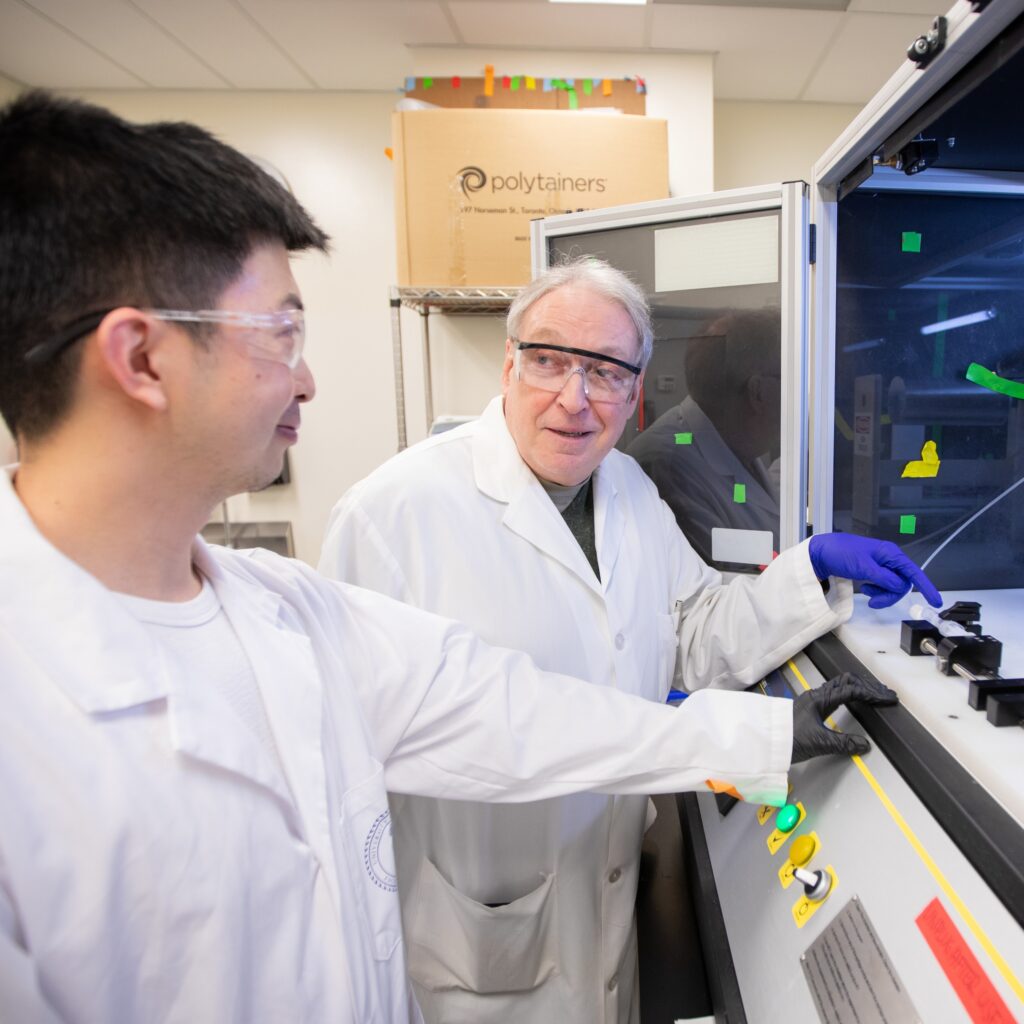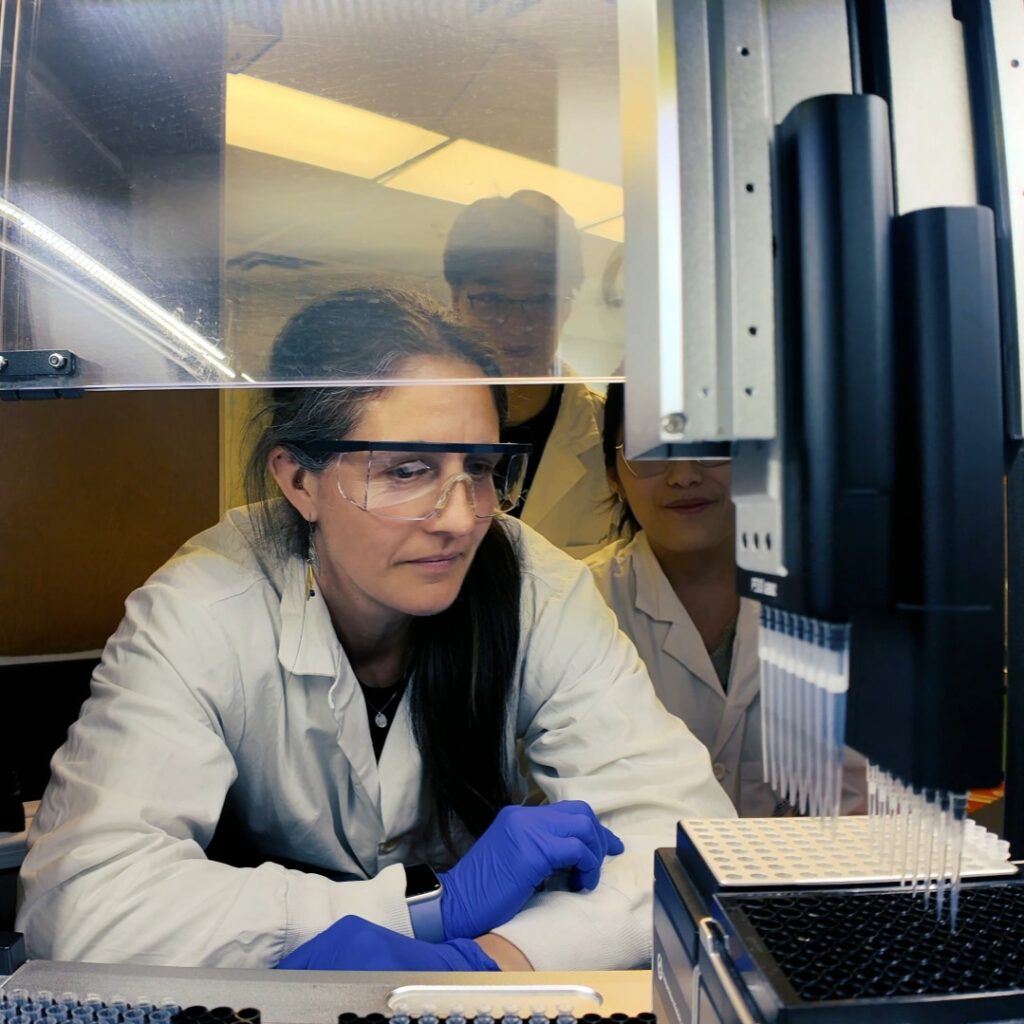News & Stories
Explore the latest news, stories, and groundbreaking research happening at the Institute of Biomedical Engineering. Stay updated on innovative projects, impactful discoveries, and the achievements of our talented students, faculty, and alumni shaping the future of biomedical science and engineering.
Quick Navigation
MRI technique enables long-term tracking of transplanted stem cell–derived heart cells
Dr. Keyu Zhuang (left, currently a Specially Appointed Research Fellow at Clinical Cardiovascular Research Institute at Shanghai University School of Medicine ) and Professor Hai-Ling Margaret Cheng (right) at the Institute of Biomedical Engineering at the University of Toronto have developed an MRI method to track transplanted stem-cell-derived heart cells over time, enabling scientists to monitor their survival and improve therapies for heart damage such as that caused by heart attacks (Photo: KITE Studio, Tim Fraser).
2025-2026 BME Magazine Cover Explainer
The Last Breath (2025), a digital artwork created in Adobe Fresco by biomedical engineering Master of Engineering student Dinuri Punchihewa, was selected as the cover image for this year’s annual Biomedical Engineering magazine.
Multiple BME faculty secure CIHR project grant funding in fall 2025 competition
Several core faculty members from the Institute of Biomedical Engineering (BME) have received Project Grant funding from the Canadian Institutes of Health Research (CIHR) in the Fall 2025 competition. These awards support research across all areas of health, from early‑stage discovery to clinical application.
Meet the BESA 2025-2026 Team
The Biomedical Engineering Students’ Association (BESA) is led by a passionate and diverse group of students committed to building community, advocating for student interests, and creating meaningful academic, professional, and social opportunities. We are excited to introduce the BESA 2025-2026 team.
Researchers highlight “regenerative healing” as a holistic framework for future health innovations
A new paper by Professors Michael V. Sefton (University of Toronto) and Malcolm King and Alexandra King (University of Saskatchewan) introduces the term “regenerative healing” as a complementary, more holistic concept to regenerative medicine. The authors suggest the framework may better reflect Indigenous perspectives on health and wellness and support more inclusive conversations about emerging biomedical therapies.
Inaugural BESA 3-Minute Thesis Competition Highlights Research Excellence and Communication
The Biomedical Engineering Students Association (BESA) proudly hosted its inaugural 3-Minute Thesis (3MT) Competition, celebrating graduate research excellence and the ability to communicate complex scientific ideas to a broad audience. The competition was held over two stages, with the semi-final round taking place on November 14, 2025, followed by the final round on November 28, 2025, bringing together graduate students from across the Department of Biomedical Engineering.
U of T researchers show that fractal geometry can help kidney cells grow in a more mature form
Researchers at the Institute of Biomedical Engineering at the University of Toronto have developed a new way to grow specialized kidney cells in the lab so that they look and behave more like they do in the body.
University of Toronto Professor Paul Santerre elected fellow of the National Academy of Inventors
Professor Paul Santerre has been elected as a Fellow of the National Academy of Inventors (NAI), the highest professional distinction awarded to academic inventors. This honour recognizes individuals whose patented innovations have made a significant and lasting impact on quality of life, economic development, and the advancement of society.
Ashley Miles Honoured with 2025 BME Unsung Hero Award
The Institute of Biomedical Engineering (BME) is proud to announce that Ashley Miles, Project Coordinator, has been named the recipient of the 2025 BME Unsung Hero Award.
IBET Momentum Fellow Paige McFarlane aims to use microfluidics to design faster, more accurate medical tests
Paige McFarlane, a PhD student in Biomedical Engineering at the University of Toronto, has been awarded the 2025 Indigenous and Black Engineering and Technology (IBET) Momentum Fellowship. This prestigious fellowship supports her direct entry into a PhD program, bypassing a master’s degree, and provides her with financial aid, mentorship, and research opportunities.
AmacaThera enters global licensing agreement with Pacira BioSciences for non-opioid post-surgical pain therapy
AmacaThera Inc. (co-founded by Prof. Molly Shoichet), a biotechnology company focused on hydrogel-based drug delivery systems, has entered into an exclusive worldwide licensing agreement with Pacira BioSciences, Inc. for the development and commercialization of AMT-143, an investigational long-acting non-opioid anesthetic intended for post-operative pain management.























